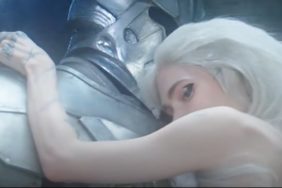Photo by Nandy McClean.

Most people know about Prince, but very few knew him personally. Jim Walsh, a Minneapolis-based journalist, covered the eccentric musician for the Pioneer Press newspaper during the ’90s, a beat he revives in the new book Gold Experience (University of Minnesota Press). From a bitter feud with Warner Bros. to the release party of “The Most Beautiful Girl in the World” single to the Paisley Park garage sale, Walsh covers the Artist (sometimes known only as a symbol) with a music critic’s expertise and a fan’s unbridled enthusiasm. Interviews, reviews, and anecdotes examine every aspect of The Purple One’s life, from his vegan diet to his marriage to Mayte Garcia to his spiritual beliefs. Though the time period captured in the book occurred well before Prince’s death from drug overdose on April 21, 2016, the stories told here feel as alive as the legend’s music does today.
Crave: Were you planning to do this book before Prince’s death or was it inspired by his death?
Jim Walsh: It was very much inspired by that. When he died, I really went into a fever of wanting to pull all this stuff together that I had written. I have some hard copies of the papers themselves, but digitally, almost none of it is online. The internet really didn’t start archiving stuff until the early 2000s. I spent about three weeks digging into newslibrary.com and finding absolutely everything I could that I wrote.
Prince and I were the same age and I had this feeling of, “I’m going to die and this is going to die with me, these stories of Prince.” People will be reading these long after you and I are gone. I wanted to make sure it was down for posterity.
What made Prince such a captivating subject?
He was the absolute artist and musician of our time. [Writer] Marty Keller said it very well: He was our North star. He was just fascinating. He was truly gifted and he worked his ass off. That word “genius” gets thrown a lot, but he truly was that. I was captivated by his process and his music.
Also: Remembering Prince: Something You Can Never Understand
What was the biggest challenge of covering Prince?
Sheer fatigue. He was a beat unto himself. He was always doing stuff, always playing, right ‘til when he died. He was always very interesting. I never took that jaundiced view that you’re required to have in daily journalism of him. I was a fan in a big way and to see him in the ‘80s so much and to see him blow the world wide open with “1999” and “Purple Rain”, it was a sign of the times. I grew up in Minneapolis, he grew up in Minneapolis, that was part of it: hometown pride. He was the greatest. He was such an amazing performer and such a warm personality and always going for something new. I loved him.
What’s your take on why Prince stayed in Minnesota?
I think there are a lot of smart, interesting, creative people here. The seasons are part of a very basic rhythm of the human animal. People always quote him as saying to Oprah that winter keeps the bad people out. I think the seasons worked well with his creative rhythm.
How would you describe Prince’s relationship with the press?
I don’t know what his relationship with the press was. With me, I very much felt like we were speaking the same language. I felt like we were connected at a heart level, which is what music is supposed to do. I didn’t turn any of that off as I wrote about him. There’s one person locally who wrote about him a lot that was flat-out mean to him. Maybe that’s what she thought her job was but whenever I read something about him, especially in that time, I thought there was so much more to write about that was so much more interesting. He made incredible records. He was very prolific. That tension with Warner Bros. created some real good ballasts for him to bang up against. It’s an under-recognized time in his career but I saw a lot of it.
A surprising part in the book is the amount of spirituality in Prince’s life. That was an interesting aspect of him.
I think the flip side of “Purple Rain”, he said, was “God”. Music is a very spiritual endeavor. He was very much of that. Also, he had great success and he had a lot of people clamoring for his time and attention right out of the gate and I imagine that would lead you to seeking answers. He was a mystical cat. He was a deeply spiritual person. It came out in his music, it came out when we talked, and, near the end of his life, as a Jehovah’s Witness.
During the times you spent with Prince and interviewed him, was there any indication that he was using drugs?
No. I was stunned. I’m still stunned. The last time I saw him was a year ago, January 21st, and I remember thinking he was very spry. He looked like a ballerina almost as he jumped up from his piano bench. I feel like sort of a sucker in some ways, but he looked like he had energy. His stage vibe was all about the music, that it was the endorphins—and it may have been. I think probably 95 percent of it was. He had the music flowing through him, especially funk. I always thought he was otherworldly that way, but it turns out he was very human, and that’s the saddest part of this story, because he should be here. If he wasn’t alone in that elevator, he’d still be here and he would have gotten help. That’s the tragedy.
Why do you think he didn’t leave a will, given that he had substantial assets?
I have no idea.
Have you been to the Prince museum at Paisley Park since his death?
I have not. I have almost no interest.
Why is that?
I have my memories. I have the music. I was out at Paisley so much back in the day. I drove by it a couple weeks ago for the first time since he died and…I don’t know. I suppose I grieve in private. I don’t want to have my hand held through losing him. With the tribute shows I saw, too, there is that feeling of “Well, that was great, but he’s dead, and it feels like it.” I have my own memories, my own memorabilia, and I have no plans of visiting there anytime soon. I know that sounds kind of dour, but I’m not called to go there at all.
That makes sense. It’s not really for the people who knew him.
I think it’s more of: there’s nothing to report from there.
The books ends with an open letter you wrote to Prince in 2002. Why did you stop covering him after that?
I left the Pioneer Press. I did a fellowship at Stanford for a year. I went to City Pages to write a weekly column. I continued to write about him. There were other people writing about him, both for City Pages and the Pioneer Press. But the book ended in 2002 because that was the end of the Pioneer Press stuff. That was the most intense, most fervently that I wrote about him.
I didn’t lose interest. I kept listening and I saw several shows at Paisley and other places. I did not write about this in the book, but he responded to that last column. It was kind of a cryptic, two-paragraph post on his webpage then. He wrote something that was very obvious that he was writing to me. He was getting ready for that show that night, which was either at the Xcel [Energy Center] or the Target Center, and he said, in that Prince language, “Go forth and live your gold experience.”
I should have saved it. It was very sweet. I guess I kind of felt like there was some sort of chapter ending there and so it was a good way to end the book, too.








